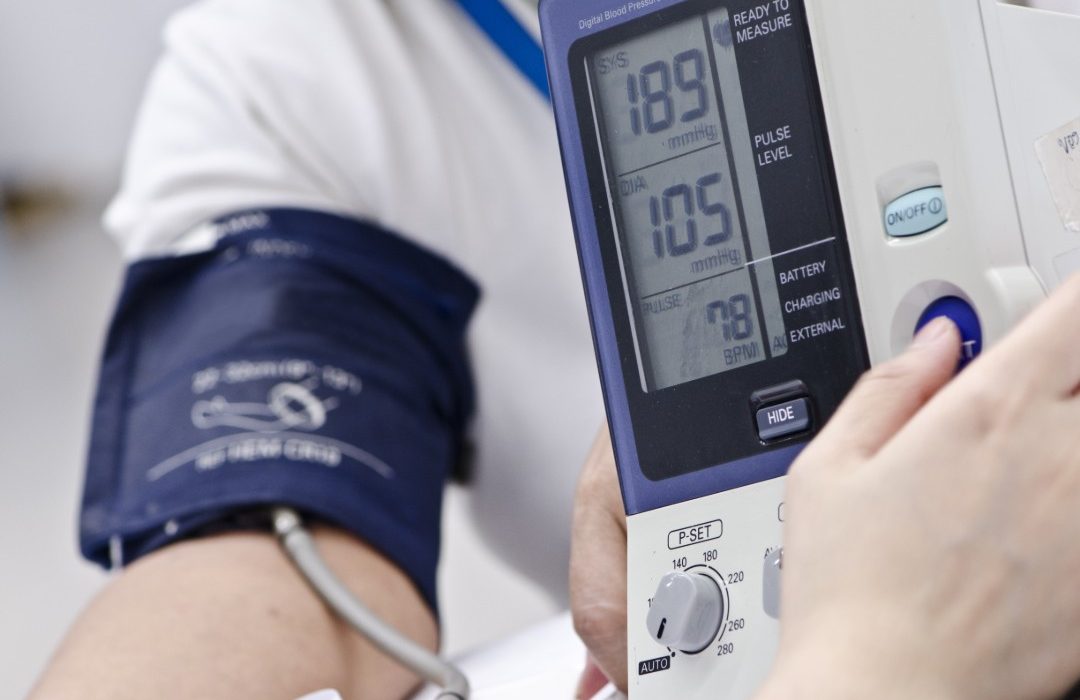
Chest Pain
Chest pain is a common symptom with many causes. While many of these are not serious, it is important to identify the heart as a potential source. Angina is a feeling of discomfort in the chest caused by a lack of blood supply to the heart. This is commonly caused by a narrowed or blocked heart (coronary) artery.
A detailed medical history, physical examination and investigations such as an ECG, blood tests and stress echocardiogram can be done in clinic to help diagnose angina. Your doctor may decide you need more investigations such as a CT, MRI or Coronary Angiogram to ensure your heart is healthy.
If a blockage or narrowing of the coronary arteries is found, the majority of cases can be treated either with medication or a stenting procedure. Percutaneous coronary intervention (PCI) or angioplasty involves opening the artery with a thin wire and balloons, then placing a supportive stent inside the vessel, relieving the obstruction.

Dizzy Spells & Blackouts
Dizzy spells, faints and blackouts in adults must be taken seriously. While simple faints are common, dizzy spells can be a symptom of narrowed heart valves or unusual heart rhythms.
After a detailed medical history and physical examination your cardiologist can perform tests in clinic for example an ECG and Echocardiogram. Holter monitors are small devices that can be worn for 24-hours or longer to record your heart rhythm during a normal day. In people who have concerning but very infrequent symptoms a loop recorder is sometimes inserted under the skin for prolonged periods of heart rhythm monitoring.

Palpitations
Palpitations or heart flutters are experienced by many people and are sometimes caused by extra (ectopic) beats or a change in heart rhythm. Abnormal heart rhythms can sometimes be confusing to understand but some more common causes include extra or ectopic beats, supra ventricular tachycardia (SVT) and atrial fibrillation (AF). Your cardiologist will begin the assessment with you by taking a history and performing an examination.
An electrocardiogram (ECG) is vital in determining your heart rhythm and often this needs to be done over a longer period with a holter monitor. This device can be taken home and records your heart rhythm over a full day. Sometimes the diagnosis can only be made using a special test called an electrophysiology (EP) study and certain problems can be treated during this procedure; this is called cardiac ablation.

Heart Murmurs
A heart murmur is an abnormal heart sound often caused by a problem with one or more of the heart valves and can be heard with a stethoscope. Heart valves are like small doors which open and close to allow blood flow in one direction through the heart. These valves can become narrowed, such as in aortic stenosis, or leaky, like in mitral regurgitation. This may lead to problems including shortness of breath, chest pain or blackouts. History taking and physical examination is the first point of evaluating a heart murmur but often an ultrasound of the heart or echocardiogram is required to look at how well your heart and valves move.

Shortness of Breath
Shortness of breath has many causes which require careful assessment. Causes include physical deconditioning, obesity, coronary artery disease, heart failure, lung disease or anaemia. Anything that impairs oxygen delivery to the body can cause breathlessness. If the heart is unable to deliver enough blood to the body, this is called heart failure.
Your doctor will ask about your history including smoking, work environments and past medical problems. Further investigations are usually required such as blood tests, ECG and echocardiogram. If the cause is thought to be your lungs then often a chest X-ray and lung function tests are be useful. Ashford cardiac clinic is pleased to offer a comprehensive range of both heart and lung testing on-site.

Blood Pressure Management
High blood pressure is a very important problem as it initially causes no symptoms but left untreated increases the risk of heart disease, stroke, and kidney disease. If your blood pressure is consistently above normal readings (Generally 140/85mmHg if you have no other problems but may be lower if you have medical issues such as diabetes mellitus) then you may require treatment. Properly assessing blood pressure often requires taking several readings over time. Your doctor may discuss self-monitoring with you or arrange a 24-hour blood pressure monitor that can be taken home and records blood pressure at regular intervals. Treating high blood pressure is more than just taking tablets; lifestyle changes are also important and include stopping smoking, dietary changes, exercise and weight loss.

Cholesterol Management
Cholesterol is a fatty substance that is required for normal body function but when levels are higher than normal the fats can build up in the blood vessels leading to stroke and heart attack. Cholesterol levels can be assessed with a simple blood test but the decision to treat often involves careful consideration of your overall health and risk factors. If you have known heart disease or diabetes then your cholesterol will need to be treated to much lower levels than other people. Bringing the levels down to target involves medication as well as changes to diet and weight loss.

Snoring & Daytime Fatigue
Many people snore and usually this is no more than an irritation for their partner. Sometimes however, it can be a sign of obstructive sleep apnoea (OSA), a condition where the breathing passages close over in sleep, interrupting your rest. This can cause tiredness during the day and may lead to high blood pressure and heart arrhythmia. A detailed history and physical examination may show clues of OSA prompting further testing wth a sleep study. This can be done either in your home or at a specialised in-hospital sleep clinic. If confirmed OSA is often treated with CPAP, a device you wear when sleeping that helps to hold the airways open.
- Chest Pain
-

Chest Pain
Chest pain is a common symptom with many causes. While many of these are not serious, it is important to identify the heart as a potential source. Angina is a feeling of discomfort in the chest caused by a lack of blood supply to the heart. This is commonly caused by a narrowed or blocked heart (coronary) artery.
A detailed medical history, physical examination and investigations such as an ECG, blood tests and stress echocardiogram can be done in clinic to help diagnose angina. Your doctor may decide you need more investigations such as a CT, MRI or Coronary Angiogram to ensure your heart is healthy.
If a blockage or narrowing of the coronary arteries is found, the majority of cases can be treated either with medication or a stenting procedure. Percutaneous coronary intervention (PCI) or angioplasty involves opening the artery with a thin wire and balloons, then placing a supportive stent inside the vessel, relieving the obstruction.
- Dizzy Spells & Blackouts
-

Dizzy Spells & Blackouts
Dizzy spells, faints and blackouts in adults must be taken seriously. While simple faints are common, dizzy spells can be a symptom of narrowed heart valves or unusual heart rhythms.
After a detailed medical history and physical examination your cardiologist can perform tests in clinic for example an ECG and Echocardiogram. Holter monitors are small devices that can be worn for 24-hours or longer to record your heart rhythm during a normal day. In people who have concerning but very infrequent symptoms a loop recorder is sometimes inserted under the skin for prolonged periods of heart rhythm monitoring.
- Palpitations
-

Palpitations
Palpitations or heart flutters are experienced by many people and are sometimes caused by extra (ectopic) beats or a change in heart rhythm. Abnormal heart rhythms can sometimes be confusing to understand but some more common causes include extra or ectopic beats, supra ventricular tachycardia (SVT) and atrial fibrillation (AF). Your cardiologist will begin the assessment with you by taking a history and performing an examination.
An electrocardiogram (ECG) is vital in determining your heart rhythm and often this needs to be done over a longer period with a holter monitor. This device can be taken home and records your heart rhythm over a full day. Sometimes the diagnosis can only be made using a special test called an electrophysiology (EP) study and certain problems can be treated during this procedure; this is called cardiac ablation.
- Heart Murmurs
-

Heart Murmurs
A heart murmur is an abnormal heart sound often caused by a problem with one or more of the heart valves and can be heard with a stethoscope. Heart valves are like small doors which open and close to allow blood flow in one direction through the heart. These valves can become narrowed, such as in aortic stenosis, or leaky, like in mitral regurgitation. This may lead to problems including shortness of breath, chest pain or blackouts. History taking and physical examination is the first point of evaluating a heart murmur but often an ultrasound of the heart or echocardiogram is required to look at how well your heart and valves move.
- Shortness of Breath
-

Shortness of Breath
Shortness of breath has many causes which require careful assessment. Causes include physical deconditioning, obesity, coronary artery disease, heart failure, lung disease or anaemia. Anything that impairs oxygen delivery to the body can cause breathlessness. If the heart is unable to deliver enough blood to the body, this is called heart failure.
Your doctor will ask about your history including smoking, work environments and past medical problems. Further investigations are usually required such as blood tests, ECG and echocardiogram. If the cause is thought to be your lungs then often a chest X-ray and lung function tests are be useful. Ashford cardiac clinic is pleased to offer a comprehensive range of both heart and lung testing on-site.
- Blood Pressure Management
-

Blood Pressure Management
High blood pressure is a very important problem as it initially causes no symptoms but left untreated increases the risk of heart disease, stroke, and kidney disease. If your blood pressure is consistently above normal readings (Generally 140/85mmHg if you have no other problems but may be lower if you have medical issues such as diabetes mellitus) then you may require treatment. Properly assessing blood pressure often requires taking several readings over time. Your doctor may discuss self-monitoring with you or arrange a 24-hour blood pressure monitor that can be taken home and records blood pressure at regular intervals. Treating high blood pressure is more than just taking tablets; lifestyle changes are also important and include stopping smoking, dietary changes, exercise and weight loss.
- Cholesterol Management
-

Cholesterol Management
Cholesterol is a fatty substance that is required for normal body function but when levels are higher than normal the fats can build up in the blood vessels leading to stroke and heart attack. Cholesterol levels can be assessed with a simple blood test but the decision to treat often involves careful consideration of your overall health and risk factors. If you have known heart disease or diabetes then your cholesterol will need to be treated to much lower levels than other people. Bringing the levels down to target involves medication as well as changes to diet and weight loss.
- Snoring & Daytime Fatigue
-

Snoring & Daytime Fatigue
Many people snore and usually this is no more than an irritation for their partner. Sometimes however, it can be a sign of obstructive sleep apnoea (OSA), a condition where the breathing passages close over in sleep, interrupting your rest. This can cause tiredness during the day and may lead to high blood pressure and heart arrhythmia. A detailed history and physical examination may show clues of OSA prompting further testing wth a sleep study. This can be done either in your home or at a specialised in-hospital sleep clinic. If confirmed OSA is often treated with CPAP, a device you wear when sleeping that helps to hold the airways open.

